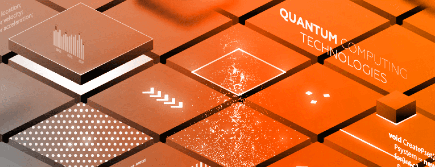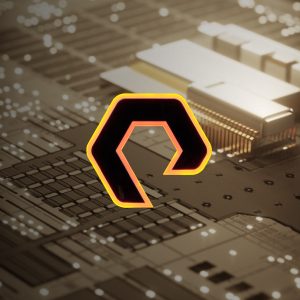What Is Quantum Computing?
Quantum computing is the use of quantum mechanics, the behavior and description of atomic and subatomic particles, as a means of holding and transmitting information in computer processing.
How Do Quantum Computers Work?
Traditional computing uses transistors that can represent two different states: 1 or 0. Quantum computing discerns variations in the behavior of particles to measure a far greater number of values, increasing potential computational power, speed, and efficiency.
When used this way, the particles are called “qubits.” And while linking together more transistors only increases computing power linearly, linking qubits together increases computing power exponentially. This is what makes quantum computing’s astonishing leaps in performance possible.
Why Is Quantum Computing Important?
In the near future, quantum computing could become a supercomputing technology for revolutionising some industries and leading to the birth of others. But of more interest is quantum computing’s potential to disrupt and even upend technologies currently in use for cybersecurity and data management—specifically encryption. In fact, anyone with an operational quantum computer would potentially have a way to decrypt at will. The bad guys also love the potential of quantum computing.
The applications of faster computing range from much better cybersecurity to significantly improved customer experiences—and in fact, anything else that requires a lot of computing power to quickly produce a result.
Quantum computing also has incredible value for machine learning and artificial intelligence. Since quantum computers can run through endless scenarios at an incredibly fast pace, they have the potential to learn how to become essentially the best possible versions of themselves for whatever central mission or task they’ve been assigned.
The ramifications for cryptocurrencies and blockchain technology are also readily apparent. At some point, as quantum computing draws nearer, organisations of all kinds will have to update IT systems to prepare and secure them from quantum computing-equipped encryption attackers.
What Is Quantum Computing Used For?
The potential benefits of quantum computing are immense. Scientists in many fields see quantum computing as a solution to challenges previously thought impossible—for example, gaining a deeper understanding of chemical reactions, more detailed simulations of complex artificial and natural systems, and the design and creation of new molecules.
In the near term, the energy efficiency of quantum computing is of enormous interest, offering a solution for operating AI and other power-hungry technologies in a more sustainable manner.
The computational power of quantum computing can also assist the development of AI. Current AI models are being trained with data created by traditional computing, the only kind of data we have. So, in effect, quantum computing can be seen as overkill as a way to train with such “coarse” data. To truly realize the potential of quantum AI, we’d need a corpus of data created by quantum applications in use by millions of users for a few decades.






